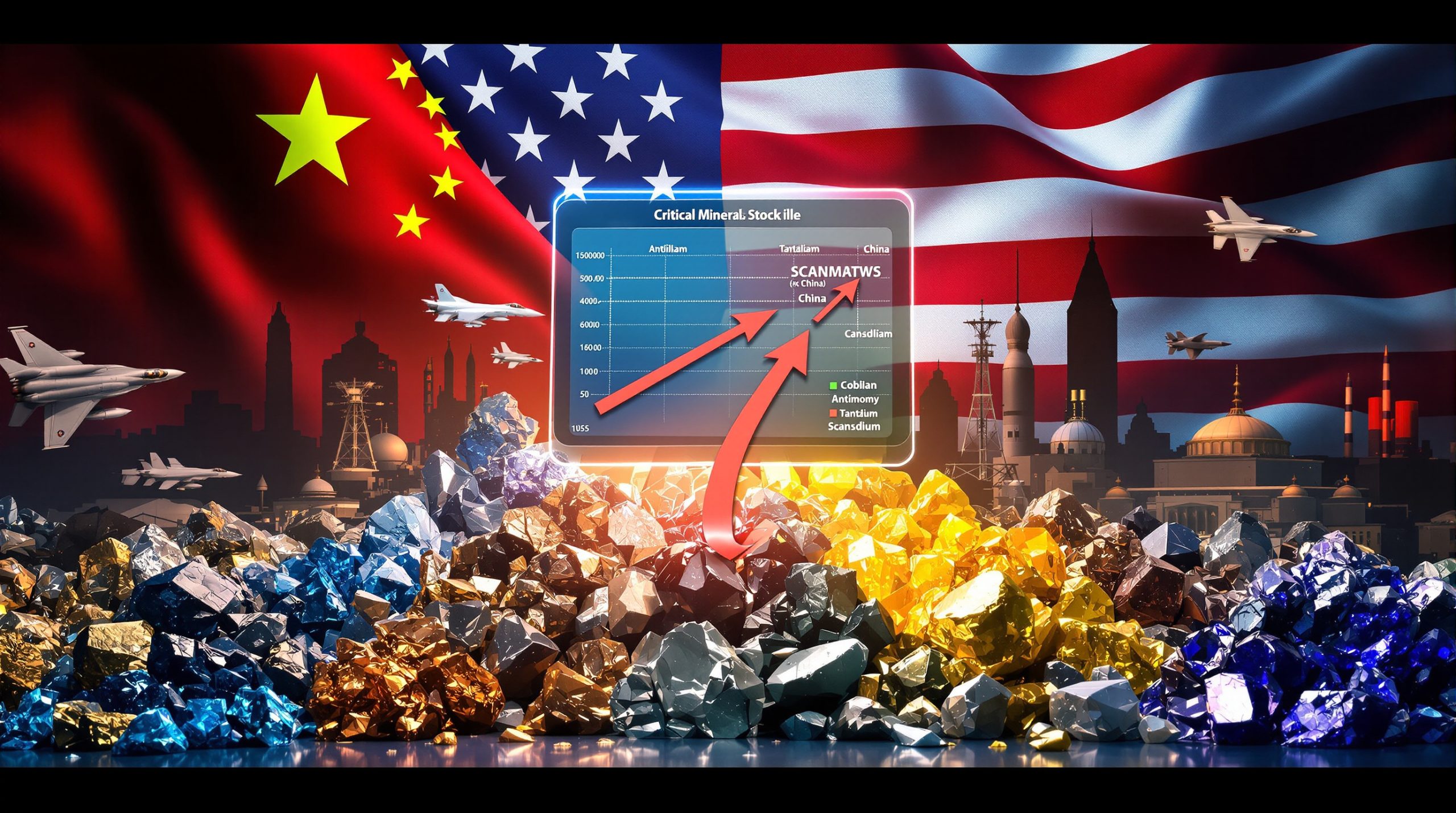Hong Kong Transforming Gold Market Infrastructure: A Strategic Expansion
Hong Kong is implementing a comprehensive strategy to revitalize its position as Asia's premier gold trading center through significant infrastructure developments. The city's chief executive John Lee recently announced plans to dramatically increase gold storage capacity to over 2,000 tons within the next three years—a substantial expansion from current levels. This initiative includes establishing a central clearing system for gold transactions that will align with international standards.
The infrastructure overhaul extends beyond storage facilities, with the government actively encouraging gold traders to establish or expand refining operations within the territory. These developments are designed to create a complete ecosystem for gold trading, from secure storage to processing capabilities.
Key Infrastructure Developments Underway
- Construction of expanded gold vaults with 2,000+ ton capacity by 2028
- Implementation of a centralized gold clearing platform
- Expansion of local refining capabilities
- Development of secure logistics networks for bullion transport
The September 2025 policy address marks a significant step up from previous proposals to gradually increase gold storage, demonstrating the government's commitment to strengthening Hong Kong's position in global precious metals markets. This announcement comes at a time when spot gold has reached unprecedented levels, recently hitting $3,702.84 per ounce.
Why is Hong Kong Positioning Itself as a Gold Trading Gateway?
Hong Kong's strategic location has historically made it the natural conduit between mainland China—the world's largest gold consumer—and international markets. The territory's renewed focus on gold trading infrastructure comes at a time when global economic uncertainties have driven increased investor interest in precious metals as safe-haven assets.
With fewer restrictions on imports and exports of bullion compared to mainland China, Hong Kong serves as a natural bridge between the global market and mainland China, where controls on shipments remain strict. This unique position allows Hong Kong to function as a critical hub for physical gold trading while maintaining strong connections to international financial markets.
Hong Kong's Competitive Advantages in Gold Trading
- Fewer restrictions on gold imports and exports compared to mainland China
- Established financial infrastructure with international connectivity
- Strategic positioning between Western markets and Asian consumers
- Legal framework familiar to international investors
- Established presence of major financial institutions
The territory's regulatory environment provides significant advantages for international traders seeking access to the vast Chinese market while retaining the benefits of Hong Kong's more internationalized financial system.
What Role Does China Play in Hong Kong's Gold Market Strategy?
The expansion of Hong Kong's gold market is closely aligned with mainland China's broader ambitions to increase its influence in global commodity markets. In his policy address, John Lee explicitly invited the Shanghai Gold Exchange (SGE) to prepare for mutual market access between Hong Kong and mainland China's gold markets.
This invitation builds upon recent collaborative initiatives, including the SGE opening its first offshore vault in Hong Kong in June 2025. This development represents a significant step toward greater integration between mainland China's gold market and international trading systems through Hong Kong's unique position.
China-Hong Kong Gold Market Integration Milestones
- June 2025: Shanghai Gold Exchange opened its first offshore vault in Hong Kong
- Introduction of two new SGE contracts specifically designed for international investors
- Coordinated efforts to promote yuan-denominated gold trading
- Strategic alignment with China's goal to reduce reliance on US dollar-denominated trade
Beijing has made significant strides in recent months to open its markets to foreign players as part of a broader strategy to gain influence over global pricing mechanisms. The SGE's expansion into Hong Kong represents a key step toward reducing reliance on the US dollar and promoting wider use of the yuan in international trade.
China's status as the world's largest bullion consumer makes this market integration particularly significant for global gold trading patterns. Data shows that China's net gold imports via Hong Kong more than doubled in July 2025, highlighting the growing importance of this trading corridor.
How Does This Expansion Impact Global Gold Trading Patterns?
Hong Kong's gold market expansion has significant implications for international precious metals trading, potentially shifting traditional power dynamics in the global gold ecosystem. As Asia's share of global gold consumption continues to grow, the development of robust trading infrastructure in Hong Kong could accelerate the eastward shift in market influence.
Global Implications of Hong Kong's Gold Market Growth
- Potential reduction in London and New York's dominance in global gold price setting
- Creation of an Asian price discovery mechanism for precious metals
- Enhanced opportunities for yuan-denominated gold trading
- Increased accessibility of Asian gold markets to international investors
- Development of new investment products tailored to regional preferences
The development of a central clearing system for gold in Hong Kong could eventually lead to greater Asian influence in global gold price discovery, particularly for physical gold transactions. While London and New York remain the primary price-setting centers for gold, Hong Kong's expanded role may gradually shift this balance.
This price environment, with record high gold prices above $3,700 per ounce, has increased investor interest in gold trading infrastructure globally. Hong Kong's timing in expanding its gold market performance infrastructure coincides with heightened demand for diversification into precious metals.
What New Gold Investment Vehicles Are Being Developed?
Hong Kong's gold market expansion includes the development of innovative investment products designed to attract both institutional and retail investors. These new vehicles aim to modernize gold investment and increase accessibility across different investor segments.
Emerging Gold Investment Products
- Tokenized gold assets utilizing blockchain technology
- Gold-backed exchange-traded funds with physical delivery options
- Specialized gold derivatives for institutional investors
- Retail-focused gold savings programs
- Integration with digital payment systems
The government has also announced plans to provide tax concessions specifically for commodity traders, creating financial incentives to establish operations in the territory. These incentives are designed to attract specialized talent and businesses to strengthen Hong Kong's position as a gold trading hub.
As blockchain technology matures, the integration of digital gold tokens with traditional gold trading systems represents a significant innovation opportunity for Hong Kong. These developments could bridge the gap between traditional gold investment and modern investment strategies.
How Does Hong Kong's Gold Strategy Connect to Broader Commodity Plans?
The gold market expansion represents just one component of Hong Kong's comprehensive strategy to strengthen its position across multiple commodity markets. This broader initiative includes significant developments in base metals trading and warehousing.
Hong Kong's Integrated Commodity Strategy Elements
- Recent approval as a warehouse location for the London Metal Exchange
- Introduction of technological innovations in commodity trading platforms
- Development of specialized financing solutions for commodity traders
- Creation of a supportive regulatory environment for commodity businesses
- Efforts to attract commodity trading talent from global markets
Earlier in 2025, the London Metal Exchange—which trades base metals like copper and aluminum—approved Hong Kong as a warehouse location for the first time, seeking a stronger link to mainland China. This development complements the gold market expansion, creating a more comprehensive commodity trading ecosystem in the territory.
The Hong Kong government has announced plans to introduce technological innovations in trading to strengthen its long-term commodity strategy, though specific details of these innovations have not yet been disclosed. These initiatives demonstrate Hong Kong's commitment to diversifying its financial services sector beyond traditional banking and securities trading.
What Challenges Does Hong Kong Face in Expanding its Gold Market?
Despite ambitious plans, Hong Kong's gold market expansion faces several significant hurdles that could impact implementation timelines and ultimate success. Talent acquisition remains one of the most pressing challenges.
Key Challenges to Market Expansion
- Talent shortage in specialized gold trading and refining operations
- Competition from established gold trading centers like London, Zurich, and Singapore
- Geopolitical tensions affecting international investor confidence
- Regulatory harmonization complexities between Hong Kong and mainland China
- Infrastructure development costs and timeframes
State-owned banks and other financial institutions have reported persistent challenges in recruiting specialized talent for gold trading operations, highlighting the need for targeted education and training programs. While Hong Kong has managed to attract some offshore talent in the gold industry in recent months, the shortage remains a significant concern.
The competition from established gold trading centers presents another challenge. London, Zurich, and Singapore have well-established gold markets with deep liquidity and strong institutional support. Hong Kong must differentiate its offering to attract business away from these centers.
How Will Expanded Gold Storage Transform Hong Kong's Market Position?
The dramatic increase in gold storage capacity represents a cornerstone of Hong Kong's strategy to become Asia's gold vault. This infrastructure development has several strategic implications for the territory's position in regional and global gold markets.
Strategic Benefits of Expanded Gold Storage
- Ability to serve as a regional reserve center for central banks and sovereign wealth funds
- Enhanced capacity to support physical delivery for gold futures contracts
- Reduced reliance on Western storage facilities for Asian gold investors
- Creation of a secure ecosystem for gold-backed financial products
- Positioning as a strategic gold redistribution hub for Asian markets
The planned expansion to over 2,000 tons of storage capacity within three years represents a significant scaling of Hong Kong's physical gold infrastructure. This increased capacity will enable Hong Kong to accommodate larger volumes of physical gold trading and storage, potentially attracting central banks and sovereign wealth funds looking to diversify their reserve holdings.
The expanded storage capacity also supports Hong Kong's ambition to serve as a physical gold trading center rather than merely a financial hub for paper gold transactions. This focus on physical gold aligns with Asian investor preferences, which have historically favored ownership of physical bullion over derivatives.
What Does This Mean for International Gold Investors?
For global investors, Hong Kong's gold market expansion creates new opportunities and considerations when developing precious metals investment strategies. The development of new trading platforms, storage facilities, and investment products provides additional options for portfolio diversification.
Implications for International Investors
| Investor Type | Key Opportunities | Strategic Considerations |
|---|---|---|
| Institutional | Access to physical gold storage in Asia | Regulatory differences from Western markets |
| Retail | New gold-backed investment products | Currency exposure considerations |
| Mining Companies | Alternative sales channels | Pricing mechanism variations |
| Central Banks | Diversification of gold reserves | Geopolitical risk assessment |
| Wealth Managers | Portfolio diversification options | Client education requirements |
The development of Hong Kong's gold market infrastructure may particularly benefit investors seeking to diversify their precious metals holdings across different jurisdictions. As geopolitical tensions increase the importance of geographical diversification, Hong Kong's position as a bridge between Eastern and Western financial systems offers unique advantages.
For mining companies, the expansion of Hong Kong's gold market provides alternative sales channels and potentially more competitive pricing for their production. The development of new price discovery mechanisms in Asia could create arbitrage opportunities and more efficient markets.
FAQ: Hong Kong Gold Market Expansion
When will Hong Kong's expanded gold storage capacity be fully operational?
Based on the government's timeline, the target is to achieve storage capacity exceeding 2,000 tons within three years, suggesting full implementation by late 2028.
How does Hong Kong's gold market connect with mainland China's gold trading system?
The Shanghai Gold Exchange has established its first offshore vault in Hong Kong, and plans are underway to develop mutual market access between Hong Kong and mainland China's gold markets.
What advantages does Hong Kong offer compared to other Asian gold trading hubs?
Hong Kong provides fewer restrictions on gold imports and exports than mainland China, an established financial infrastructure, familiar legal frameworks for international investors, and strategic positioning between Western and Asian markets.
Will Hong Kong's expanded gold market impact global gold prices?
While London and New York remain the primary price-setting centers for gold, Hong Kong's expanded role could eventually lead to greater Asian influence in global gold price forecast development, particularly for physical gold transactions.
What types of gold investment products will be available through Hong Kong's expanded market?
The market will offer traditional physical gold trading alongside innovative products such as tokenized gold assets, specialized ETFs, gold derivatives, and retail-focused gold savings programs.
Further Exploration:
Readers interested in learning more about developments in global gold markets can also explore related educational content available on Mining.com, which regularly covers trends and developments in precious metals markets worldwide.
As gold reaches record gold highs in 2025, Hong Kong's strategic positioning in the gold market will likely continue to evolve, according to a recent report from the South China Morning Post examining how the city plans to boost tokenised gold trading.
Want to Discover the Next ASX Mining Opportunity Before the Market?
Whilst Hong Kong expands its gold infrastructure, discover significant mineral opportunities on the ASX as they happen with Discovery Alert's proprietary Discovery IQ model, delivering real-time notifications on potentially transformative discoveries. Visit our discoveries page to see how early identification of major mineral finds can generate substantial returns for investors.




